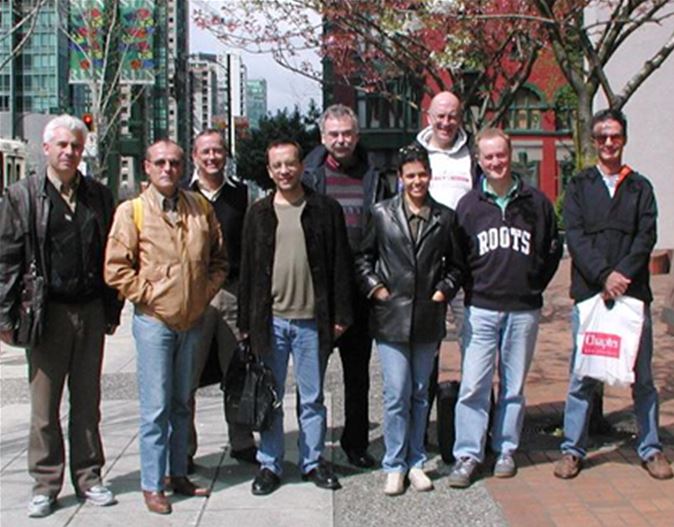Finanziert durch die Deutsche Forschungsgemeinschaft (2003 - 2005)

The concept of force, and the different actions that are subsumed by it, vary across time and place. Understood as the threat, or use, of physical constraint or physical incapacitation against a person, force can result in degradation, pain, injury and occasionally death. This definition underlies the widespread social concern regarding use of force by the police, because its effects are physically and psychologically indistinguishable from those produced by violence. The distinction between force and violence is not material (based on their consequences), but moral (based on the purposes for which they are used). Force is physical intervention for justified reasons, such as the need to defend someone’s life or to bring a law violator to justice. Violence is physical intervention without justification. Thus, when physical intervention by the police is unjustified, police use of force has been transformed into police violence.
Distinguishing between justified and unjustified uses of force by the police is not easy. Several dimensions of an encounter may need to be considered simultaneously, such as the behavior of the citizen, the types of physical intervention available to the police officer, and the legal mandate for police work. Depending upon the attention given to each of these dimensions, justifications for the use of force can vary in content. Additionally, the interactions between citizens and the police in the diverse encounters that are common to police work may be rapid and changing. The use of deadly force, for example, may be justified if the citizen is wielding a gun, but not so if he throws it to the ground. Depending upon the attention given to these interactions, justifications for the use of force can vary in level of detail.
These two types of variation – in content and detail – of justifications for the use of force can be observed not only in individual officers’ accounts but also in the laws and departmental policies that govern the use of force by the police. The different normative frameworks for the use of force therefore represent an interesting and important topic for study. They are of interest because the normative frameworks for the use of force reflect potentially different conceptions of policing and may reveal important social and cultural variations in perceptions of police work. They are important because varied normative frameworks for the use of force pose challenges for international human rights initiatives that would seek to standardize the justified uses of force by the police.
However, despite their interest and importance, the normative frameworks for the use of force have not figured prominently in research on the police. Far greater attention has been paid, for example, to the incidence and determinants of the use of force and to the institutions that monitor police behavior. For that reason, scholars from five countries came together (in Mérida, Venezuela) in March 2001 to discuss the possibilities for an international comparative project on the normative frameworks for the use of force by the police. Over the course of three days, researchers from Brazil, Canada, Trinidad and Tobago, the United Kingdom and Venezuela presented basic information about the use of force by the police in each country and discussed the preliminary design of an empirical project that would explore normative frameworks for the use of force (see Conference 2001 in Mérida).
In April 2002 the group met for a second time in Vancouver, Canada, to finalize the design for the project and establish a timetable for conducting data collection and analysis. Researchers from Argentina, Brazil, Canada, Germany, the United Kingdom and Venezuela were present at the meeting, and additional countries may participate in this project (see Conference April 2002 in Vancouver). The data collection protocol will be tested in each country by the end of 2002 and data collection will proceed during 2003. The research group has scheduled a panel on “Normative Frameworks for the Use of Force by the Police” at the World Society of Criminology meeting to be held in Rio de Janeiro, Brazil, in August 2003 (see Meeting 2003 in Rio de Janeiro). At that panel, members of the group will give an overview of the international project and reports on participating countries.
Abschlussbericht für DFG
Country Reports
Australia, Germany, England and Wales, Netherlands, USA, Venezuela
Articles in Journals
Singing the same tune? International continuities and discontinuities in how police talk about using force. Christopher Birkbeck, Otto Adang, David Baker, Thomas Feltes, Luis Gerardo Gabaldón, Eduardo Paes Machado, P. A. J. Waddington. In: Crime, Law and Social Change, 2009, 2, 52, S. 111-138.|
Torn between two Targets: German Police Officers Discussing Use of Force. Astrid Klukkert, Thomas Feltes, Thomas Ohlemacher, In: Crime, Law and Social Change 2, 52, 2009, S. 181-206 Die diskursive Rechtfertigung von Gewaltanwendung durch Polizeibeamtinnen und -beamte – Methoden und Ergebnisse eines empirischen Forschungsprojektes. Astrid Klukkert, Thomas Feltes, Thomas Ohlemacher. In: Polizei & Wissenschaft 2008, S. 20-29 "…, dann habe ich ihm auch schon eine geschmiert." Autoritätserhalt und Eskalationsangst als Ursachen polizeilicher Gewaltausübung. Astrid Klukkert, Thomas feltes, Thomas Ohlemacher. In: MSchrKrim 4/ 2007, S. 285-303 |
